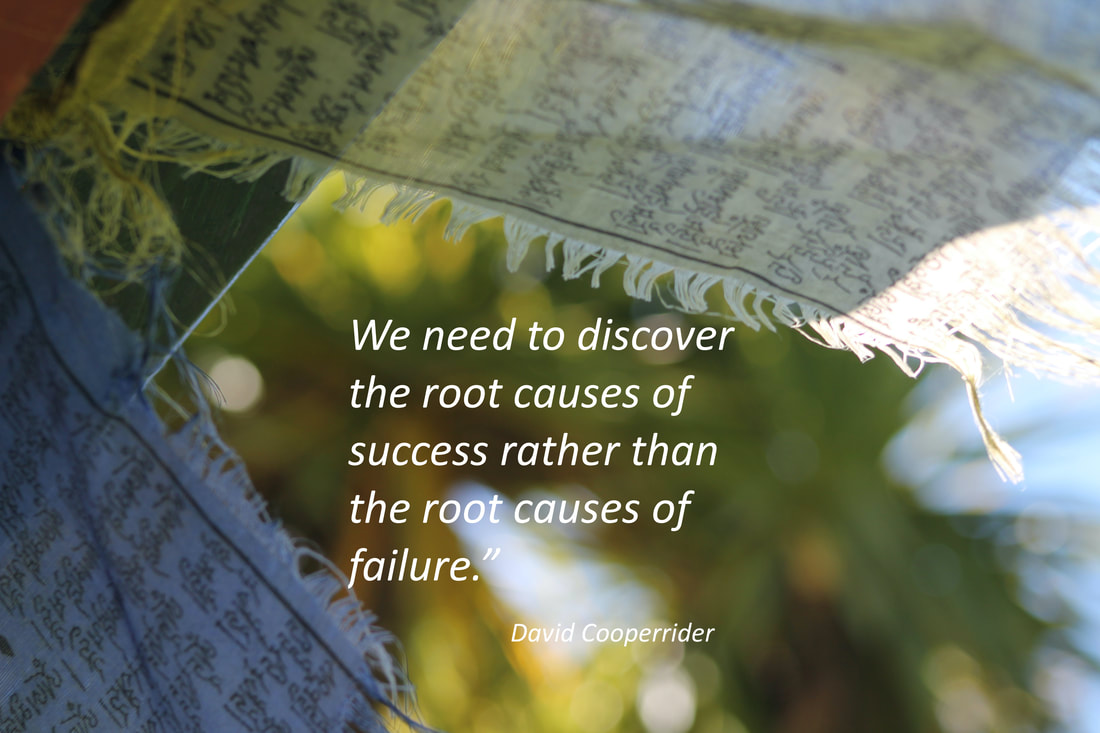The simple part is that appreciative inquiry is all about positivity. Focusing on what your organisation is doing right and then building on these strengths. Sounds sensible and logical?
OK then, but here comes the slightly scary bit. With appreciative enquiry, the “problems” in your organisation are effectively ignored – the principle being that if you do more of the things you are good at, the problems will sort themselves out. Put another way, appreciative inquiry suggests that you can create change by paying attention to what you want rather than paying attention to problems.
People find this part a little scary because we are used to solving problems. We like to fix things.
A great example of appreciative inquiry comes in the context of staff culture surveys. You know - the kind that ask you how much you like your working environment, how much you rate your managers and colleagues, whether you understand your organisation’s mission, how well managers communicate with staff etc. In most places I have worked, teams generally then get set up to “solve” the top ranking “concerns” from survey results. They huddle, work out an approach, implement a set of actions and report back to staff. Commendable and well meaning.
But appreciative inquiry turns that thinking on its head and says - instead of focusing on problems you should focus on the top ranking survey outcomes. So for instance if staff like the monthly “all hands” meeting with the CEO, think about how you can do that even better. Or if the way the organisation communicates with its customers is admired, think about how you can improve that another notch.
Using Appreciative Enquiry in a yoga business - a practical example
- Discovery Phase: Conducts interviews and surveys to identify positive aspects. Learns that certain classes receive consistently positive feedback, people love the centre's environmental credentials and there's a strong sense of community among long-time attendees.
- Identify Themes and Strengths: Recognizes that the positive feedback revolves around specific instructors, the community atmosphere, and the mindfulness-focused classes.
- Dream Phase: Involves instructors, staff, and practitioners in envisioning the ideal future. Participants express a desire for more events fostering community engagement, additional meditation classes, and more focus on organics.
- Design and Planning: Develops a plan to enhance community engagement by introducing monthly potluck dinners, creating themed classes, and investing in organic gardens. Offers professional development for instructors to further improve teaching skills.
- Implementation: Rolls out initiatives systematically. The studio introduces monthly community events, diversified class formats, and more organic vegetable gardens. Instructors attend workshops to refine their skills.
- Feedback and Reflection: Regularly collects feedback through surveys and open forums. Adjustments are made based on feedback, and positive experiences are highlighted within the community.
- Ongoing Improvement: Maintains a culture of positivity and continuous improvement. Regularly revisits and refines initiatives based on feedback and emerging opportunities.




 RSS Feed
RSS Feed